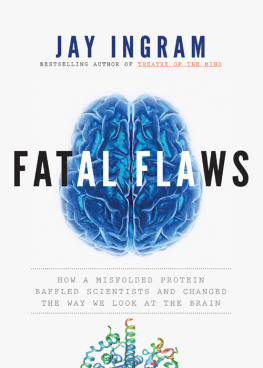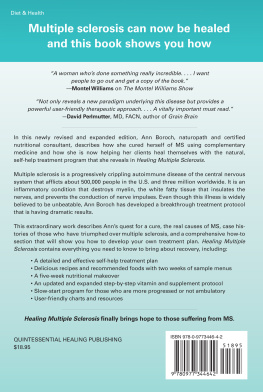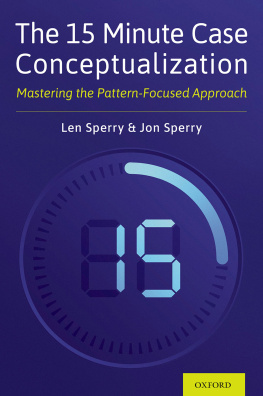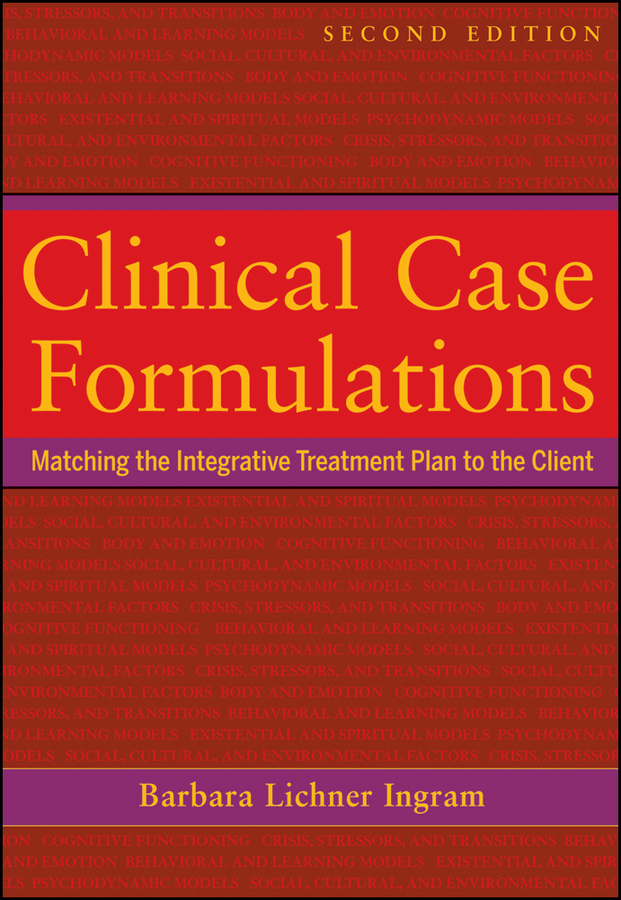Ingram - Clinical case formulations : matching the integrative treatment plan to the client
Here you can read online Ingram - Clinical case formulations : matching the integrative treatment plan to the client full text of the book (entire story) in english for free. Download pdf and epub, get meaning, cover and reviews about this ebook. City: Hoboken, N.J, year: 2011, publisher: John Wiley & Sons, genre: Romance novel. Description of the work, (preface) as well as reviews are available. Best literature library LitArk.com created for fans of good reading and offers a wide selection of genres:
Romance novel
Science fiction
Adventure
Detective
Science
History
Home and family
Prose
Art
Politics
Computer
Non-fiction
Religion
Business
Children
Humor
Choose a favorite category and find really read worthwhile books. Enjoy immersion in the world of imagination, feel the emotions of the characters or learn something new for yourself, make an fascinating discovery.

- Book:Clinical case formulations : matching the integrative treatment plan to the client
- Author:
- Publisher:John Wiley & Sons
- Genre:
- Year:2011
- City:Hoboken, N.J
- Rating:5 / 5
- Favourites:Add to favourites
- Your mark:
Clinical case formulations : matching the integrative treatment plan to the client: summary, description and annotation
We offer to read an annotation, description, summary or preface (depends on what the author of the book "Clinical case formulations : matching the integrative treatment plan to the client" wrote himself). If you haven't found the necessary information about the book — write in the comments, we will try to find it.
Matching the Integrative Treatment Plan to the Client, Second Edition
[Barbara Ingram has put] a career into the development of this book and it is wonderful! My students love that it was written with them in mind and they love the statements designed to reduce anxiety and normalize the learning process. This is an excellent book!Amy M. Rees-Turyn, PhD Associate Professor of Counseling Psychology, Lewis & Clark College
A step-by-step model for individualized case conceptualization
Fully revised and updated, the second edition of Clinical Case Formulations provides step-by-step tools and insightful guidance for moving from first contact with a client to the development of an effective, personalized treatment plan. Addressing the essential question every therapist facesHow do I create a treatment plan that is the best match for my client?this unique resource provides a systematic and thoughtful method for integrating ideas, skills, and techniques from different theoretical approaches. It combines empirical research and clinical experience to create a case formulation that is tailor-made for the client.
This comprehensive resource offers two tools to guide case formulations: a problem-oriented framework, with a list of 28 standards for evaluating its application, and a set of 30 core clinical hypotheses derived from the knowledge bases of psychology, psychiatry, counseling, and social work professions.
The new edition includes:
Hypotheses on Emotional Focus, Trauma, and Metacognitive Perspective
More detailed attention given to empirically supported therapies such as Dialectical Behavior Therapy (DBT) and Acceptance and Commitment Therapy (ACT)
Discussion on the importance of bringing cultural competence to case formulation tasks with every client
Skill-building activities throughout the text
Offering a thorough framework to help clients experience effective clinical service, practitioners will learn to conceptualize clients needs in ways that lead to strong and individualized treatment plans, as well as advice and guidance on what to do when selected interventions fail to produce the expected benefits.
Ingram: author's other books
Who wrote Clinical case formulations : matching the integrative treatment plan to the client? Find out the surname, the name of the author of the book and a list of all author's works by series.


















